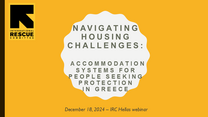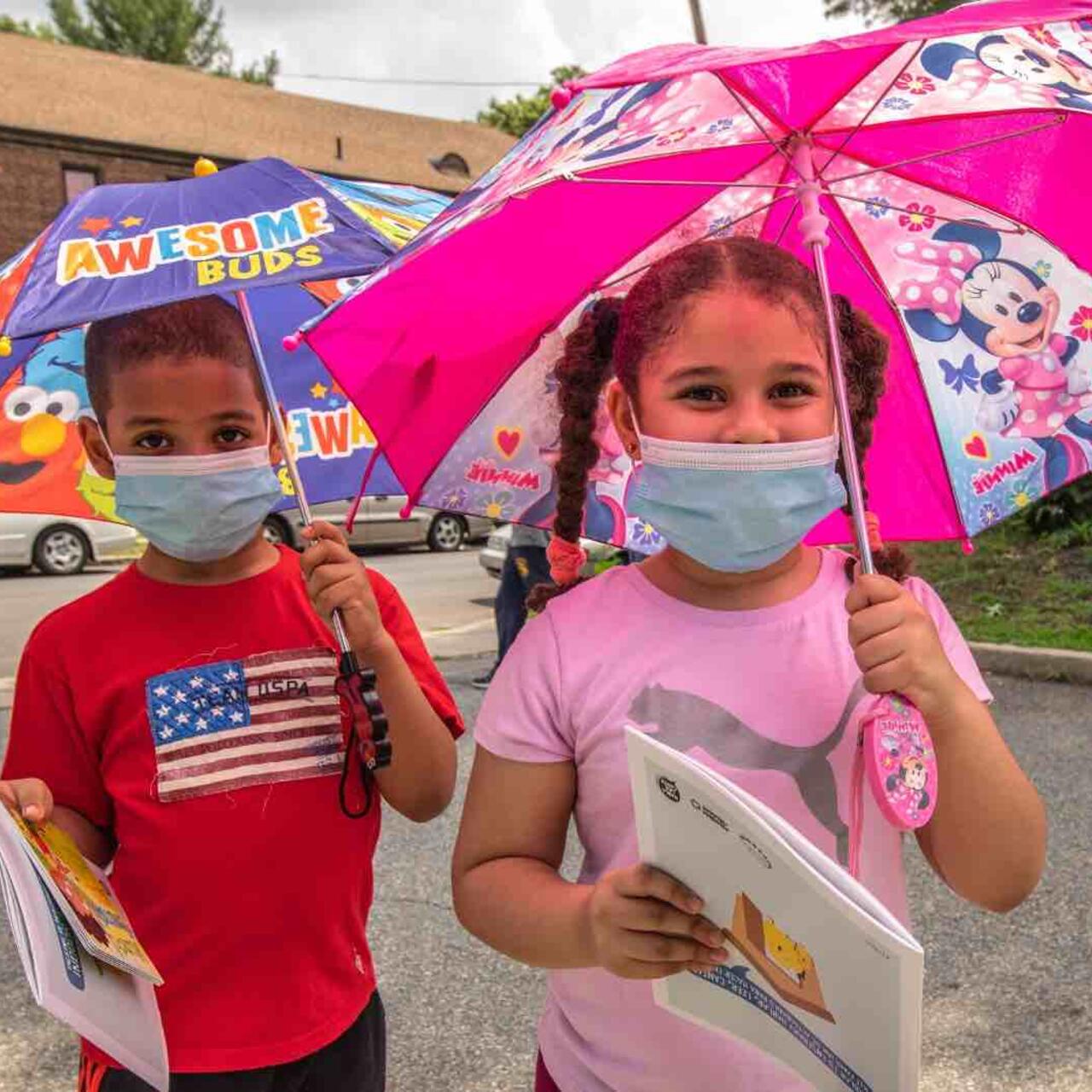
This week marks one year since the EU launched its Action Plan on Integration and Inclusion (2021-2027) – its roadmap towards strengthening integration for asylum seekers, refugees and others with migrant backgrounds in Europe over the next six years.
This was launched at a critical moment. Over the past year, the impacts of COVID-19 have continued to ripple across the world with a disproportionate impact on the most vulnerable, while global displacement has soared to a record high of 82.4 million people. We know that the only way out of this global pandemic is for everyone to be fully included in the response and recovery efforts. Implementing the EU Action Plan is one important step towards forging a long-term response to the pandemic that better includes and benefits refugees and migrants.
What must EU member states do to make this a reality? Find out here.
What is the EU Action Plan on Integration and Inclusion?
When refugees and asylum-seekers are given the opportunity to contribute socially, culturally and economically it benefits everyone – both receiving countries and refugees.
That's why the IRC was pleased that the EU launched its Action Plan on Integration and Inclusion in November 2020 – a framework for member states to support migrants to “reach their full potential” and European societies to “benefit from their strength and skills”.
The Action Plan covers all stages of the integration process including priority areas such as access to education and training, employment, healthcare, and housing. To support integration efforts in these areas, the Action Plan recognises the importance of refugee and migrant participation in the policymaking process. It sets strong ambitions for member states, and provides them with the ability to track their progress against these.
The European Commission plays an important role in supporting integration through funding, developing guidance, and fostering partnerships. However, EU member states have legislative competency in this area – that means it's down to each EU state to implement this plan at national level in order to support refugees in overcoming obstacles on their pathway to integration.
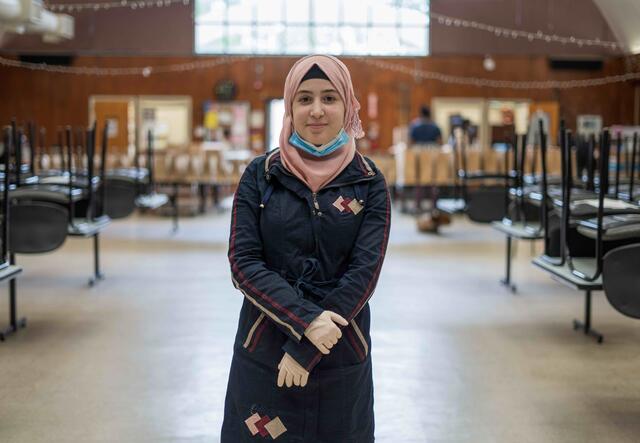
Why has COVID-19 made this even more important?
The COVID-19 pandemic has disproportionately impacted vulnerable groups across the EU and made it even harder for refugees to rebuild their lives and settle into new communities.
We know that refugee and migrant populations tend to meet many of the vulnerability criteria that put them at greater risk of COVID-19. Evidence shows that, even in high income countries, this group has been overly-represented in COVID-19 cases and deaths. This is a result of structural inequities which often result in migrants living in more crowded spaces and working in sectors where social distancing is a challenge.
Refugees and other migrant groups experience higher barriers to accessing healthcare including, crucially, the COVID-19 vaccine. So far, many states have failed to adequately address this inequity resulting in nearly four million undocumented migrants in Europe remaining unvaccinated as of September 2021, according to the Bureau of Investigative Journalism.
We also know that refugees and migrants tend to face greater livelihood and income insecurity than the general population. New research from the IRC, in collaboration with the Overseas Development Institute, highlights the impact of COVID-19 on refugees’ economic opportunities. Some 96% of refugees and vulnerable members of host communities interviewed in Greece found that their prospects of work were impacted by COVID-19. In terms of economic opportunity and wellbeing, it’s worse to be a woman, and worse yet to be a displaced woman, in the wake of COVID-19.
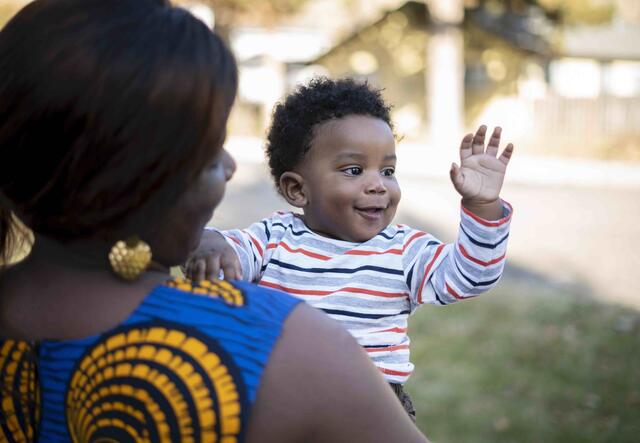
How can the Action Plan help forge a long-term and inclusive response to COVID-19?
- Delivering equitable access to healthcare
Many people take it for granted that healthcare is easy to access, and readily available. However, this simply is not the case for many refugees and migrants – including inside Europe. This insufficient access to healthcare has long been a barrier to integration and inclusion. Refugees that experience health problems may struggle to find employment or participate in education, and this has only been exacerbated by the global pandemic.
Even before the pandemic struck, global frameworks – including the Global Compact on Refugees - had already recognised the significance of equitable access to healthcare for refugee and migrant populations. However, structural inequities that too often result in refugees and other migrants receiving inadequate standards of care have persisted. The Action Plan’s focus on inclusive healthcare can help address some of these challenges.
The pandemic itself has also created new challenges. For instance, an ‘infodemic’, or an overabundance of information – some accurate, some not – has spread rapidly alongside COVID-19, allowing misinformation narratives to flourish. Myths surrounding COVID-19 often undermine public health advice, and where communities experience linguistic, cultural and practical barriers to accessing healthcare services, their impact can be particularly pronounced. This can result in, for instance, increased hesitancy or a lack of access to the vaccine, leaving refugee and migrant populations particularly vulnerable to COVID-19.
Ensuring equitable access to healthcare for refugees and other migrants should be a priority for the European Union. This can be supported by providing information in different languages, and devising customised strategies to counter misinformation for this diverse group. As the EU grapples with the rapid spread and impact of misinformation around COVID-related public health measures or vaccinations, for example, it is vital that the specific needs and vulnerabilities of refugees are prioritised in the policy response.
- Strengthening employment opportunities
The IRC’s programmes in Greece support asylum seekers and integration with integration – especially into the labour market. Since the onset of the global pandemic, we have seen the existing challenges faced by these groups increase.
While refugees have the right to work in Greece, as do asylum seekers six months after completing their claim, bureaucratic obstacles have long hindered their access to employment in practice. For instance, opening a bank account, renewing a residence permit, or securing a social security registration number for employment are essential for entering the labour market, but difficult to do for refugees.
Meanwhile, the pandemic followed a 10-year economic crisis in Greece, rendering refugees even more vulnerable to economic hardship. The Greek government’s fragmented approach to integration and difficulties for refugees in accessing support services have exacerbated this problem. This has become even more pronounced in the last year as policy decisions by the Greek state increasingly force asylum seekers out of the community and into closed centres and camps. It doesn’t help that many sectors employing a high proportion of refugees were particularly impacted by the crisis, including tourism, hospitality, and domestic work.
As societies slowly begin to open up after the global pandemic, providing integration support for new arrivals, including job readiness training and language support, can help enhance employment opportunities for refugees - both in Greece and beyond. Improving access to childcare is also essential for supporting refugee women’s entrance to the labour market.
- Promoting meaningful participation
In many countries, governments did not systematically include the voices and needs of refugees in the pandemic response. This can undermine efforts to counter misinformation or deliver services, as well as create barriers to integration. Instead, meaningful participation should be based on the concept of co-creation and, where possible, co-ownership.
In some cases, refugees and refugee-led organisations (RLOs) played a vital role in filling these gaps and strengthening national policies, as partners, frontline responders, and influencers. For example, the refugee and migrant-led platform New Women Connectors developed the Vaccine4All campaign. This campaign conducted a mapping exercise of access to vaccines in Europe and has two main goals: firstly, to advocate for people of any immigration status to receive the vaccine, and secondly, to address vaccine hesitancy.
Partnering with refugees and RLOs has been critical to addressing COVID-19 and strengthened the overall response. This response showed the need to engage refugee communities on the broad array of decisions that impact their lives.
The challenge now is to translate some of the lessons learned during COVID-19 into systemic change that centres on the meaningful involvement and participation of refugee communities, and responds to the diverse needs and strengths of this group.
In the long-term, facilitating meaningful participation of refugees will require sustained investment from governments, NGOs and multilateral institutions. This can be achieved by, for example, investing in refugee leadership capacity, the co-design of programmes and policies, identifying key policy barriers jointly with refugees, and equitably compensating refugee speakers for sharing their experiences and expertise.
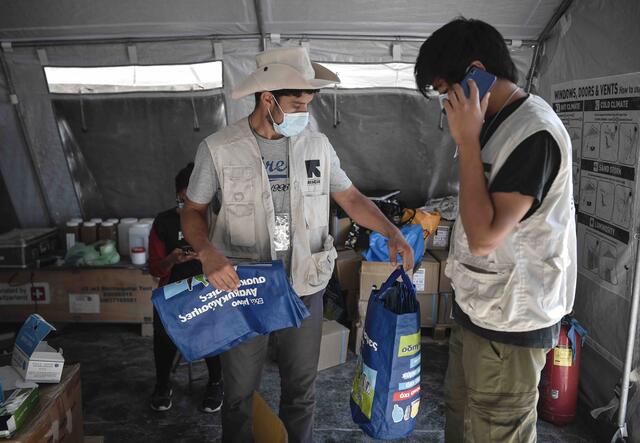
How can the EU and member states make this a reality?
On the one-year anniversary of the EU Action Plan on Integration and Inclusion, the IRC is calling on the EU and its member states to take five key actions:
- Fully and swiftly implement the EU Action Plan on Integration and Inclusion (2021–2027), with health and employment as two of its key outcome areas.
- Ensure that integration support is delivered from arrival and incorporate job readiness training, structured language support, and access to childcare.
- Ensure that public health institutions work with home affairs departments, local government and NGOs to deliver linguistically and culturally appropriate COVID-19 healthcare information.
- Involve refugee and migrant-led organisations as equal partners in planning the long-term response to COVID-19.
- Hold an exchange with member states on countering misinformation and facilitating equitable access to healthcare and information provision for asylum seekers, refugees, and other migrants.
Learn more:
- Report: Strengthening the COVID-19 response within refugee and migrant communities: Improving programming, tackling misinformation, and building inclusion
- Report: The time is now: A plan to realise the potential of refugees in Greece
- Webinar recordings: Countering Misinformation Webinar Series
- Report: Women’s economic empowerment in the face of COVID-19 and displacement Restoring resilient futures
